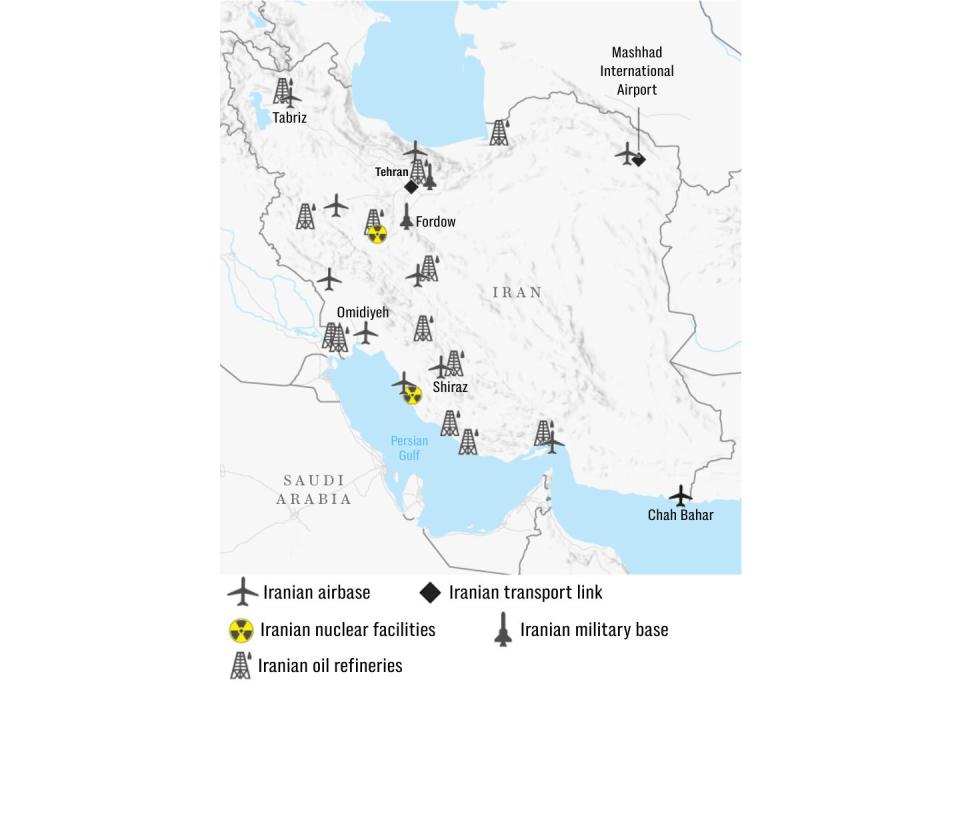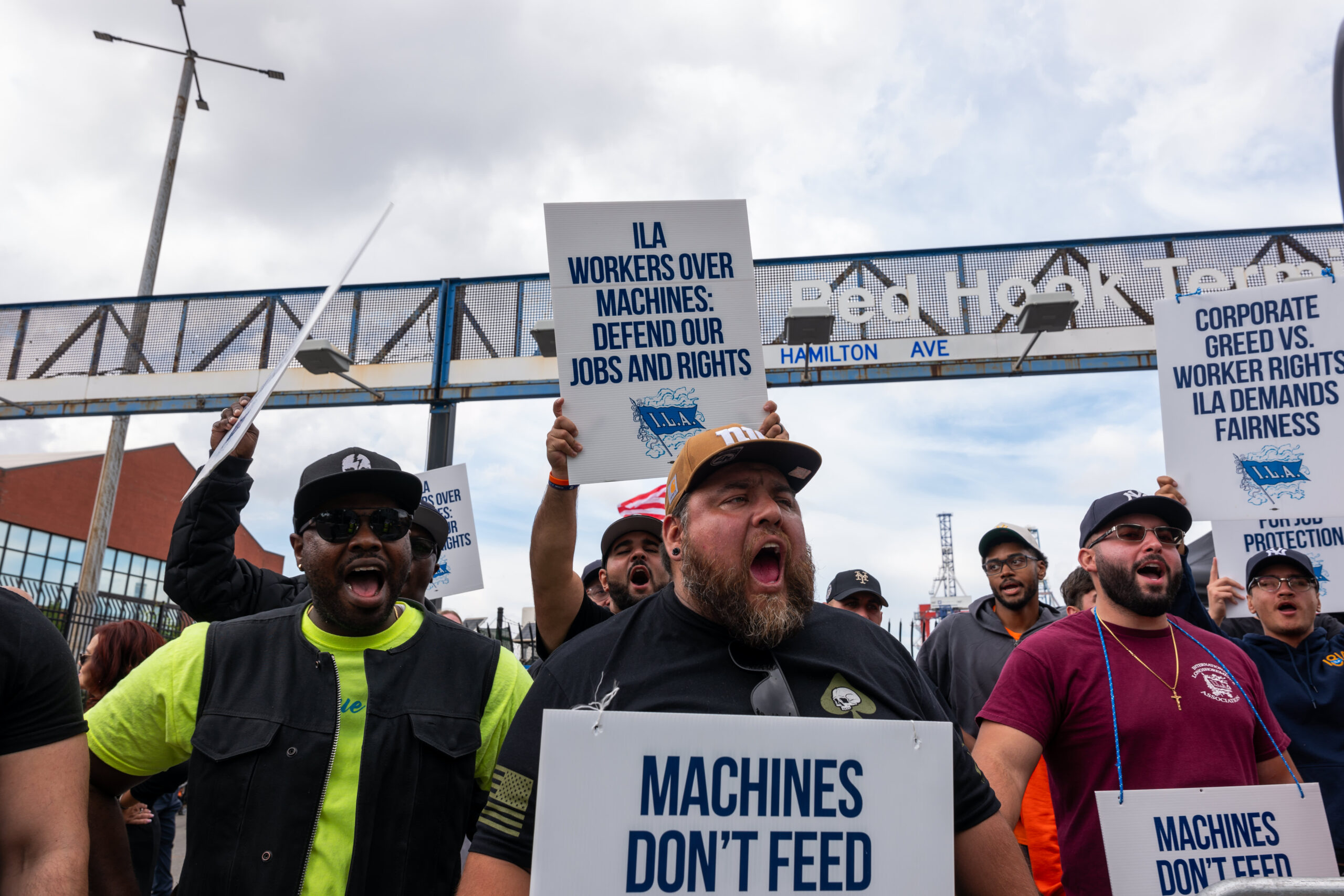Benjamin Netanyahu, the Israeli prime minister, is expected to exact a “heavy price” from Iran after it fired 180 ballistic missiles at Israel on Tuesday.
He has a number of options at his disposal.
One Israeli official told The Telegraph that the military is assessing an assault on Iran that will cause “economic damage”.
Sources have also been briefing that early plans include an attack that could target Iran’s oil facilities, air defence systems or Iranian officials.
But there are other possibilities too, ranging from smaller to major attacks on energy facilities and Iran’s export chain, nuclear facilities – and even the leadership itself.

Mr Netanyahu’s security cabinet is yet to make a decision but Israel is currently thought to be coordinating closely with the US on the matter.
Here are the options ranked from lowest to highest risk of triggering a major escalation.

Israel could target Iranian energy assets, such as oil refineries, as oil revenues support Iran’s economy despite numerous international sanctions.
This could come through jets, long-range missiles or sabotage on the ground.
This has longer term implications and will not succeed in quickly crippling Iran’s military capabilities.
It would also likely trigger volatility in global petrol prices, which would risk upsetting Western allies despite much of Iranian fuel being under sanction.

Israel may attempt to target Iran’s vast missile programme, which spans across the country, from Bandar Abbas in the south to Tehran in the north.
Recent satellite images revealed an expansion of two complexes outside Tehran known as Modarres and Khojirm, both believed to be associated with ballistic missile development.
In the city of Isfahan, Iran is producing and assembling components for missiles, and in Qom the military is conducting missile tests.
A wave of airstrikes on its ballistic missile production sites, which are overseen by the elite Islamic Revolutionary Guard Corps (IRGC), would be the least escalatory attack, as it would likely be seen as a fair response to Tuesday’s attack.

Benjamin Netanyahu already planned to attack Iran’s nuclear programme in 2010-2011 but his intelligence and army chiefs opposed the idea due to the risks of a major retaliation.
Since then, Iran has secured its most vital nuclear facilities, some of which are deep underground, such as the enrichment facility at Fordow.
Iran claims the programme is part of civilian energy plans, but uranium enrichment is now thought to be close to levels needed to produce a nuclear weapon.
The clamour to hit the nuclear programme is building, and hardliners believe now is the time to strike – while Western allies stand firmly behind Israel and Iran and its proxies appear to be weakened.
The attack would, however, be extremely difficult as Iran’s nuclear sites are also spread across a number of sites throughout the country, often deep underground, from uranium sites in the south to research centres in the north-west.
It is widely believed that Israel would need assistance from the US to effectively destroy the underground nuclear sites, using American B-2 Spirit bombers which can carry the “Massive Ordnance Penetrator” bomb.
It would also most likely mean a full-scale war between Israel and Iran.

Lastly, Israel could go directly after Iran’s leaders, ranging from Ayatollah Ali Khamenei, the supreme leader, to Masoud Pezeshkian, the president, or Hossein Salami, the chief of the Iranian Revolutionary Guard Corps (IRGC).
Ayatollah Khamenei was already brought into a bunker twice in the past week; first when Israel assassinated Hassan Nasrallah, the leader of Hezbollah, and then again on Tuesday after the ballistic missile attack.
Mr Netanyahu strongly hinted that Iran’s leaders could be next: “The regime in Tehran does not understand our determination to defend ourselves and to exact a price from our enemies. Sinwar and Deif did not understand this; neither did Nasrallah or Mohsen. Apparently, there are those in Tehran who do not understand this either. They will.”
But while attacks on Iran’s nuclear sites, oil facilities, or ballistic missile production would divide the international system, assassination of the supreme leader would likely be met with all-round condemnation, as it is a violation of international law to target heads of states.
Killing Hossein Salami would be considered less of an escalation, as the US killed his predecessor, Qassem Soleimani, in 2020, with the assistance of Israel.
EMEA Tribune is not involved in this news article, it is taken from our partners and or from the News Agencies. Copyright and Credit go to the News Agencies, email news@emeatribune.com Follow our WhatsApp verified Channel




